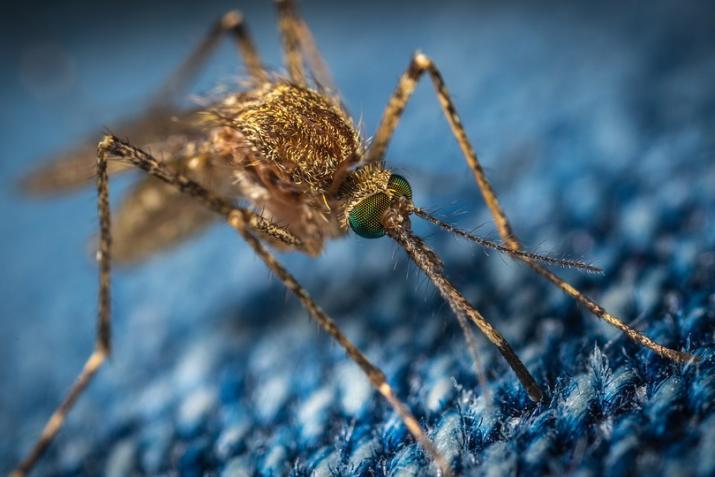
As mosquitoes develop resistance to existing insecticides, public health officials say new tools are needed to help control the spread of diseases such as malaria. Photo by Pixabay
Published January 30, 2023, last updated on July 25, 2023 under Research News
A voucher program designed by Duke faculty to encourage the development of new insecticides has been signed into law, potentially opening the door to new tools in the fight against diseases such as malaria, dengue fever West Nile virus and Zika.
As mosquitoes and disease-carrying parasites develop resistance to existing insecticides, public health officials say there is a critical need for new products to help control infectious diseases, especially in tropical regions. But with limited market potential for such products, agrochemical companies have invested little in this area. In fact, no new class of insecticide has been developed in 40 years.
Enter the Vector Expedited Review Voucher (VERV), which was part of a bill signed by President Joe Biden in December 2022. Based on work by three Duke professors, the program rewards companies willing to create new pesticides against targeted diseases with a faster review process of a second – and more lucrative – product, such as a crop-protecting pesticide.

"We have over 700,000 deaths a year due to vector borne disease. We need new tools to continue to win that battle,” said Jeffrey Moe, Ph.D., a professor with the Duke Global Health Institute and one of the architects of VERV.
Moe proposed the voucher program in a 2017 paper co-authored with David Ridley, a professor at Duke’s Fuqua School of Business, and Nick Hamon, former CEO of the Innovative Vector Control Consortium, a nonprofit that works to spur development of safe pest-control technologies. The program expedites the U.S. Environmental Protection Agency’s review process for new insecticides, which could potentially save companies dozens of millions of dollars, according to the paper, and thus reduce the financial risk of developing products with limited profitability.
“It’s a prize, a way to encourage companies to produce insecticides that are not profitable enough,” said Ridley, who is faculty director for health sector management at Fuqua.
VERV builds on a similar incentive program designed by Ridley, Moe and retired Duke professor Henry Grabowski to attract investment in the development of new drugs for tropical diseases, rare pediatric disorders and medical counter-measures. The Priority Review Voucher (PRV) program was adopted by the U.S. Food and Drug Administration in 2007 and is credited for sparking more than a billion dollars of investment in drugs for tropical diseases.
As with PRV, vouchers obtained through the VERV program can be used directly by the company or sold to recoup costs. The new program also adds measures to encourage access to the products where vector borne diseases are prevalent. “Companies need to report what prices they will charge, where they will make the product, and in which countries they will make the product available. Hopefully this will help them plan and pressure them to follow through. We need to be sure that people get the products,” Ridley said.
Compared to the pharmaceutical industry, the number of companies developing agrochemicals is quite small, Moe said. The success of the program may hinge on convincing companies that already have products in the pipeline to explore their potential for public health.
“These companies have small portfolios of products, mostly directed to agricultural use. If we convince them to add small investments and pivot these promising active agents to a public health use, we might have two or three new insecticides awarded in the next few years."


